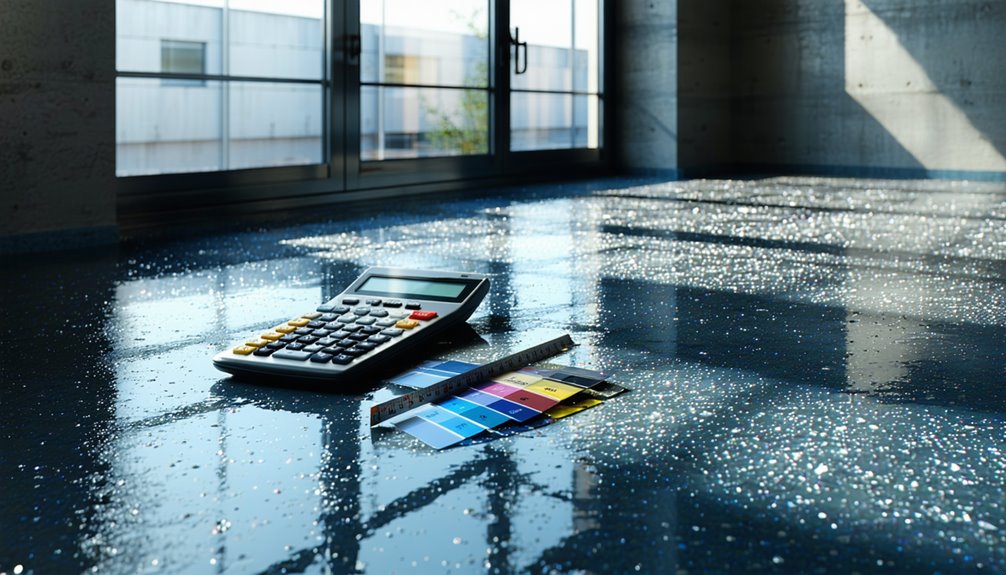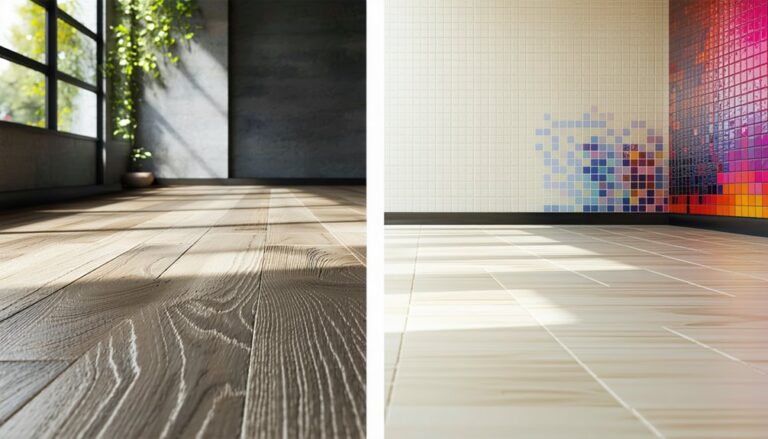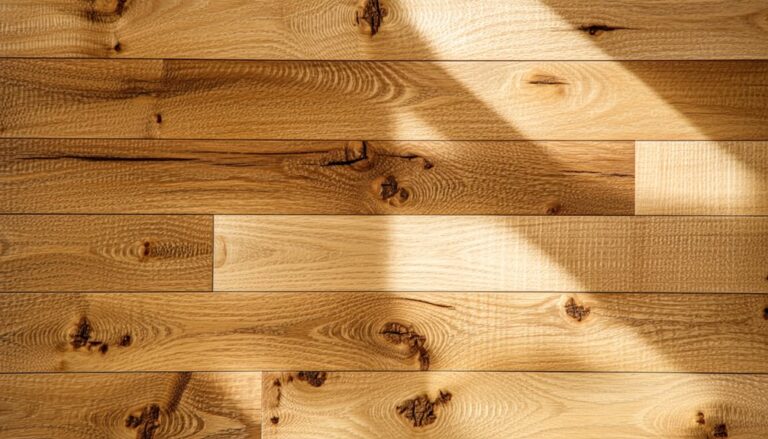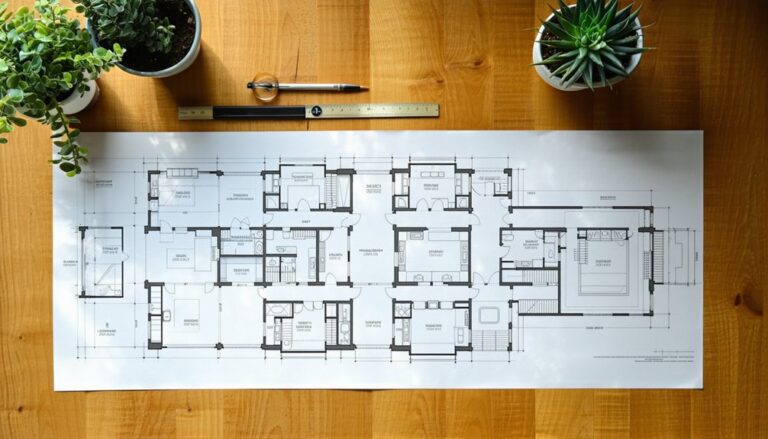Epoxy flooring generally costs between $3 and $12 per square foot. This price can vary based on several factors, including the type of epoxy chosen and the complexity of the installation. For instance, solid epoxy tends to be more expensive but offers superior durability. Additionally, larger areas and custom finishes will raise the overall cost. Basic surface preparation can range from $1.50 to $2.50 per square foot, while decorative options may go up to $5.00 per square foot. Understanding these details can help you make an informed choice about your flooring options and what suits your needs best.
Overview of Epoxy Flooring Costs
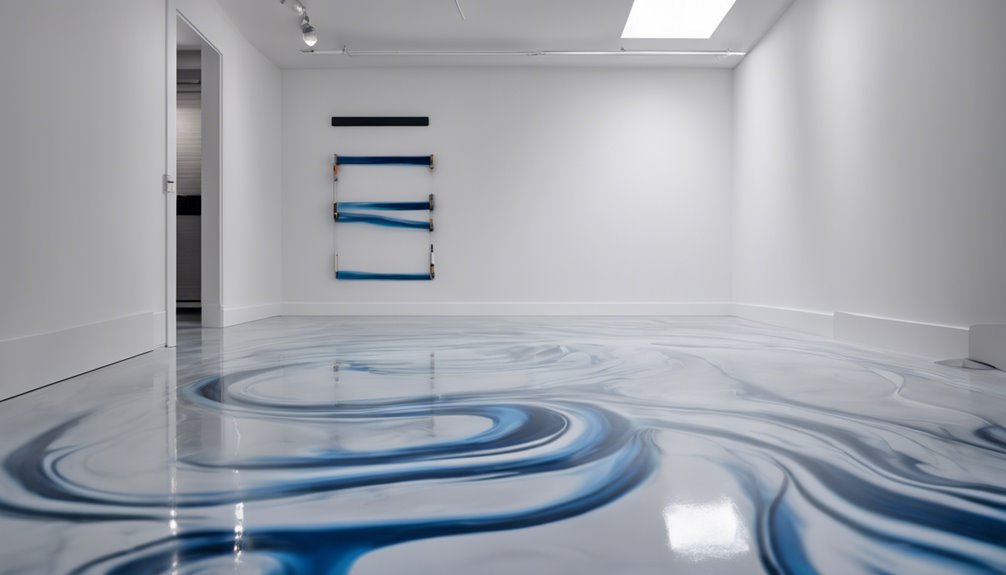
When considering epoxy flooring, it's essential to understand the various factors that influence costs. Epoxy flooring offers numerous benefits, including durability, chemical resistance, and low maintenance, which enhance long-term value. Its seamless application creates a clean, polished look that elevates flooring aesthetics, making it ideal for residential and commercial spaces alike. The initial investment in epoxy flooring can be offset by its longevity and strength, which stand up to heavy foot traffic and spills. Additionally, the wide range of colors and finishes allows you to customize your space, offering freedom to express your style. By weighing these advantages against the upfront costs, you can make an informed decision about whether epoxy flooring aligns with your needs and preferences.
Factors Influencing Cost
While several factors can affect the overall cost of epoxy flooring, the most significant elements include the type of epoxy used, the size of the area to be covered, and the complexity of the installation process. Your color selection can also impact the final price, as custom colors often cost more. Additionally, proper surface preparation is essential; if your piso needs extensive repairs before applying the epoxy, expect higher expenses.
| Factor | Influence on Cost |
|---|---|
| Type of Epoxy | Varies widely in price |
| Area Size | Larger areas cost more |
| Installation Complexity | More intricate jobs cost more |
| Color Selection | Custom colors increase cost |
| Surface Preparation | More prep leads to higher costs |
Types of Epoxy Flooring
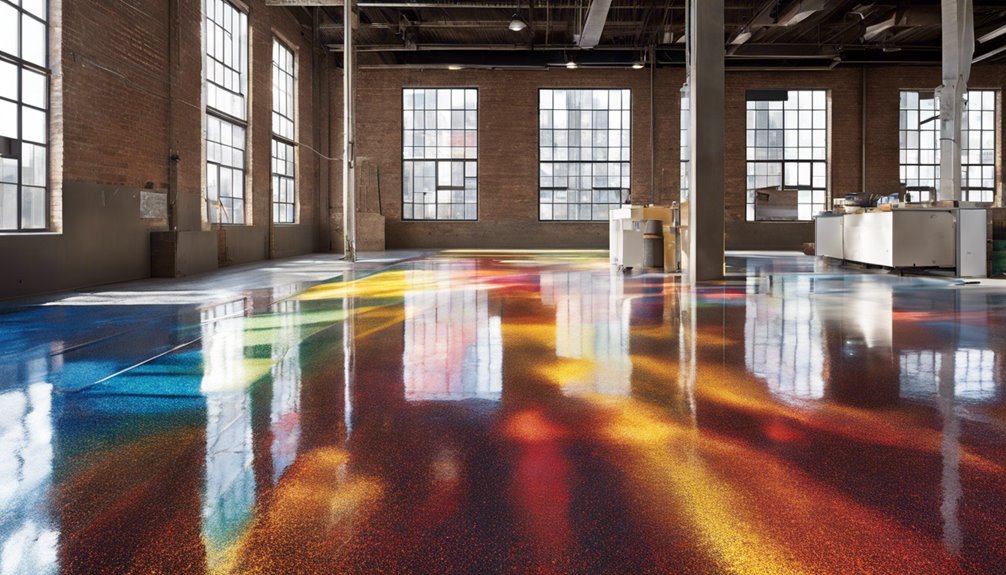
Epoxy flooring comes in various types, each designed to meet specific needs and preferences. You'll encounter several epoxy types, including solid epoxy, water-based epoxy, and 100% solids epoxy. Solid epoxy offers durability and resistance to chemicals, making it ideal for garages or industrial settings. Water-based epoxy is easier to apply and dries faster, perfect for residential projects. On the other hand, 100% solids epoxy provides a thicker finish, enhancing longevity and performance. Each of these options boasts flooring benefits like stain resistance, low maintenance, and aesthetic versatility. Choosing the right type can greatly enhance your space, providing not just protection but also an attractive surface tailored to your lifestyle. Consider your specific requirements to make the best choice for your project.
Installation Expenses
When considering epoxy flooring, it's crucial to understand the installation expenses involved. You'll need to account for labor costs, which can vary based on the complexity of the job, and also the material prices, which differ depending on the type of epoxy chosen. Additionally, factors such as surface preparation and area size will influence the overall installation costs.
Labor Costs Breakdown
Understanding the labor costs involved in epoxy flooring installation is essential for budgeting your project effectively. Labor pricing can vary considerably based on the installation techniques used and the complexity of your project. Here's a breakdown of typical labor costs you might encounter:
| Installation Technique | Estimated Cost per Square Foot |
|---|---|
| Basic Preparation | $1.50 – $2.50 |
| Decorative Finishes | $3.00 – $5.00 |
| Repair Work | $2.00 – $4.00 |
| Special Applications | $5.00 – $8.00 |
These figures can help you gauge the financial commitment required. Remember, skilled labor may enhance durability and aesthetics, making it worth the investment in the long run.
Material Prices Overview
After evaluating the labor costs for your epoxy flooring project, the next step involves examining the material prices that will contribute to your overall installation expenses. Understanding the various material types and their pricing variations is essential for making informed decisions.
- Epoxy resin
- Hardener
- Primer
- Decorative flakes
- Topcoat
These components can greatly influence your budget. For instance, premium epoxy resins or decorative additives can drive up costs, while budget-friendly options might save you money but affect durability and aesthetics. As you review material prices, consider the long-term benefits of investing in higher-quality materials versus the short-term savings of cheaper alternatives. This clarity will empower you to choose the right materials for your unique project needs.
Additional Installation Factors
While evaluating the overall costs of your epoxy flooring project, it's vital to contemplate additional installation factors that can greatly influence your final expenses. The choice of installation techniques, whether you opt for a DIY approach or hire professionals, can considerably affect costs. Professional installers might charge more, but they guarantee a quality finish that could save you money in the long run. Additionally, proper surface preparation is imperative; any imperfections can lead to adhesion issues and costly repairs later. Factors like the existing floor condition, moisture levels, and the type of epoxy used also play a role. By understanding these elements, you can make informed decisions that align with your budget and desired outcome.
Mantenimiento y longevidad
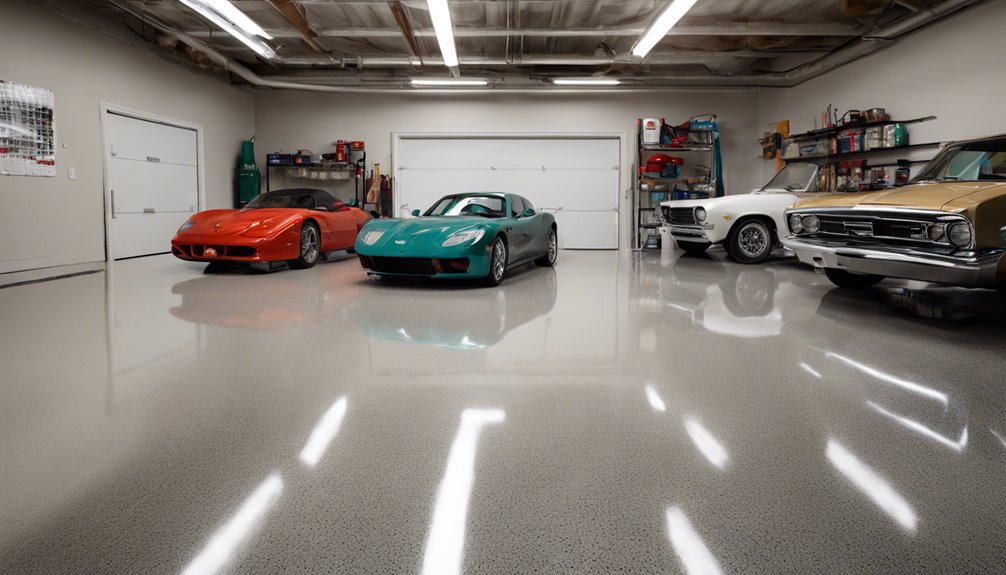
Although epoxy flooring is known for its durability, proper maintenance is essential to confirm its longevity. By following specific epoxy care practices, you can greatly enhance your flooring lifespan. Here are some key tips to keep in mind:
- Regularly sweep or vacuum to remove debris
- Use a damp mop with pH-neutral cleaners
- Address spills immediately to prevent staining
- Avoid harsh chemicals that can damage the surface
- Periodically inspect for signs of wear or damage
Keeping up with these maintenance tasks will not only preserve the aesthetic appeal of your epoxy flooring but also guarantee it remains functional for years to come. By investing a little time in care, you'll enjoy a long-lasting, resilient floor that complements your space.
Cost Comparison With Alternatives
When considering flooring options, it's important to evaluate not just the maintenance and longevity of materials like epoxy but also their cost compared to alternatives. Epoxy flooring typically ranges from $3 to $12 per square foot, depending on the complexity of the installation. In contrast, alternatives such as vinyl or laminate can cost between $1 to $5 per square foot, but they often lack the durability and epoxy benefits of resisting stains, chemicals, and heavy impacts. While the initial investment in epoxy may be higher, its longevity can lead to lower long-term costs. Ultimately, weighing the upfront expenses against the performance and lifespan of alternative flooring will help you make an informed decision for your space.
Preguntas frecuentes
Can I Install Epoxy Flooring Myself to Save Money?
Picture the satisfaction of transforming your dull concrete into a glossy, vibrant surface through DIY installation. You can indeed tackle epoxy flooring yourself, offering significant cost savings compared to hiring professionals. However, it's vital to understand the preparation and application processes involved. Proper surface cleaning, mixing the epoxy, and applying it evenly are essential steps for achieving a durable finish. With patience and attention to detail, you can create a stunning floor that reflects your style.
How Long Does Epoxy Flooring Take to Cure?
The cure time for epoxy flooring can vary, but typically, you'll find it takes about 24 to 72 hours for the surface to harden. During the curing process, the epoxy chemically bonds, ensuring durability and strength. It's essential not to walk on or place items on the floor until it's fully cured to avoid damage. For ideal results, maintain a stable temperature and humidity level during this phase to expedite curing effectively.
Is Epoxy Flooring Suitable for Outdoor Use?
You'd think epoxy flooring could withstand a meteor shower! In reality, while epoxy is known for its durability, it's not always the best choice for outdoor use. UV exposure can cause fading and deterioration over time, impacting both its durability and outdoor aesthetics. If you want to use it outside, consider UV-resistant formulations, but be aware that it may still not hold up as well as other outdoor flooring options.
What Colors and Designs Are Available for Epoxy Flooring?
When considering epoxy flooring, you'll find a wide array of color options and design patterns to suit your style. From solid hues to vibrant blends, the choices can be customized to create the perfect look. You can opt for metallic finishes for a striking effect or incorporate decorative chips for added texture. The versatility of epoxy allows you to express your individuality while ensuring durability and ease of maintenance in any space.
How Does Epoxy Flooring Affect Resale Value?
When considering the effects of epoxy flooring on resale value, it's clear that its modern flair lends significant resale benefits. You'll find that its durability and aesthetic appeal can enhance a property's market appeal, attracting buyers who appreciate low maintenance and stylish interiors. Plus, the variety of colors and designs allows customization, making your space stand out. Ultimately, investing in epoxy flooring can yield a favorable return when selling your home.

